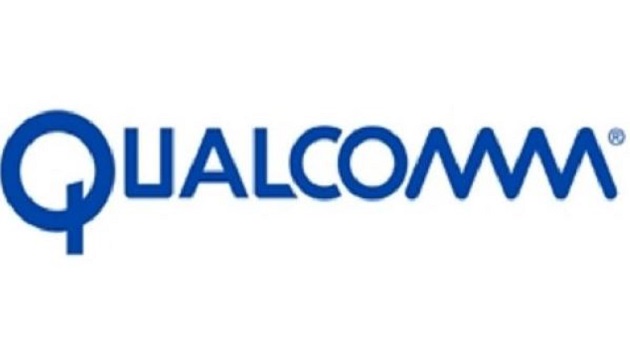Telecom
Nigeria Needs Telecom Infrastructure Funding Bank – Nnamani

Engr. Ikechukwu Nnamani, is managing director of Medallion Communications, a data centre operator in the country. He spoke to chike onwuegbuchi on issues around data centre operations in the country.
Building Private and Public sectors confidence in hosting their servers in the country
We are seeing great improvement in terms of adoption; we are seeing a lot of people appreciating the need for it as well as improvement of uptake of local data centre services compared to what it was in the past. From our own data centre in terms of the uptake year in year out I can say for certain over the last one year we have to increase our data centre capacity significantly just to take in more customers, that for me is an indication that a lot of people are beginning to see the need.
Certifications in the ecosystem and service availability
The Tier certification is being managed by uptime institute and really it is a benchmark where they want to create minimum requirement for availability in terms of support from the data centre most of it is towards power availability, so remember in other environments where data centre have been existing for a long time, the understanding is that they have steady power supply from public sources to private sources power is very steady.
You have cases where for many years they have not experienced a blink in their power supply. They want a situation where you don’t have to depend on public power to run your data centre, those were markets where you have natural disaster like earthquake, tsunami among others that may disrupt public power supply so without these natural disasters you hardly have a disruption all things being equal.
So, the Uptime Institute is assuming for instant if you have data centre in California unfortunately you have the California fire issue that took place last year and your data centre had to be cut off from the public power supply within the data centre do you have availability of power? That will last for 72 hours which is Tier 111 certification, you should be self- sustaining in power for 72 hours if there no public power supply.
That means if you are operating a data centre in California with Tier 111 certification, you have to show outside of the traditional power supply that you have built redundancy, if it goes off you can self-sustain yourself either on battery back- ups, generators or some other means that will ensure that your data centre should be operational for 72 hours in case of Tier 111 certification.
It becomes interesting when you bring such requirement into our climate, where you usually operate your data centre almost on private power supply, like our data centre we operate seven days straight on self -generating power, because the public power supply from PHCN is not available.
So, how much Tier will you put such a data centre? From power perspective it becomes interesting when you look at markets like ours. There was a particular case we were on our self –generating power for more than five weeks running.
Although there are areas that uptime institute looks at but the key point is power. They also look at redundancy; for instance, you should maintain dual power feed equipment to data centre.
My take is that Tier certification is important because it gives a guide to minimum service level you should attain as a data centre. It is worth doing or attaining.
Where I have a problem is when people start using it as a marketing tool as if it is a big deal then I have a problem with that because by default every data centre should operate at that standard.
Why would organisations host their servers with you?
We have been able to offer our customers efficient service at right service levels we are able to create a market place they interface with others. We are able to provide a carrier neutral infrastructure where they are not afraid they are dealing with a competitor with them.
Any service our customers are offering from our data centre we at Medallion don’t go and start competing with them to offer such service. That gives them the confident that truly they are at carrier neutral place.
We also enable every one of our customers to be treated equally in terms of size, whether you are big like MTN or small operator, we give every of them equal opportunity to do their business in efficient and cost effective way. Availability and the minimum standard I enumerated earlier we make sure we don’t fall below them.
I think these are the reasons they are with us, of course pricing is important, I don’t think we are the most expensive in the market. You have to ensure that your client can afford the cost of the services you are offering them. Clearly, Medallion data centre is the most connected presently.
Potential of Data centre business in Nigeria
There have been new data centres in the market since last year I said the country requires 72 data centre with the two new ones we have not even started. Interestingly, the two announcements are still in Lagos where the major existing operators are located. This means that people have not fully understood the situation at stake and what needs to be done to address the problems of geographical spread of the infrastructure.
We have to look at it from the strategic point to ensure that people making investment in data centre make the right one with location in mind.
We need to be able to extend connectivity, service delivery and content across various part of the country so that it is less dependent on the transmission links. I always say, Imagine a call taking place in Sokoto between an MTN subscriber and Glo subscriber and that call comes all the way to Lagos in order to be exchanged before going back to Sokoto. It doesn’t make sense just from the basic principle of it.
Some of these things have to change, if we are to attain the right quality of service and better pricing for services.
Data centres are concentrated in Lagos. Is there no demand for the service outside of Lagos?
The need is there, it is a case of business model and understanding in terms of potential revenue generation. Some believe that the market is in Lagos. If they build a data centre in Lagos they will be able to get return on investment faster in Lagos.
I defer from that line of thinking. I believe there is demand in every state capital in Nigeria that needs to be address, it is a matter of somebody taking the step to go there and set up and then you see the business, that is the way to go, it may take some time but ultimately over time people will find out it is the way to go.
Lagos is still an important market it is not yet saturated even for data centre business but I can assure you that there are some cities today that need it more than Lagos, everybody knows what they are looking for in the business we won’t tell where to locate their business. Some of them are more successful than we are so, we won’t advise them.
In the next few years it will become obvious especially to those who do not see now that it is necessary to build that infrastructure outside of Lagos.
Is Medallion Thinking of Expanding outside of Lagos?
Yes. As we are speaking now we are working out a plan to building a new data centre in Enugu, Kano, Ibadan, Port Harcourt, Asaba and possibly Kaduna in addition to Lagos and Abuja where already have data centres that is our plan for this year 2019.
This is capital intensive project how are going about funding this expansion projects?
It is a tricky one because there is high cost of fund in Nigeria. You have to look outside to see if you can cheaper fund which initially may appear cheaper but when you look at challenges such as exchange rate fluctuations then it becomes a problem even if initially you get it at a cheaper interest rate.
Image you took up a debt finance at dollar exchange rate of 363 suddenly it drops N1,000 that means you need more revenue just to be able to service your debt than you need today, who are you going to pass that across to? That was the reason a lot of companies went under when the exchange rate went from N120 to N350 especially those trading in the oil and gas sector even those in telecoms that is highly dependent on foreign currency in terms of investment building of infrastructure.
One of the things we are pushing through as an association, ATCON is that government needs to intervene in the area of funding the same way it intervene in the manufacturing sector, with the stuff Bank of Industry is doing for the manufacturing sector. Even in the banking sector when there was crisis in that sector they came in with AMCON and others to give some bailout among others.
There is need for government to intervene, some of us have advocated for the setting up of telecom infrastructure fund bank to provider long term low interest rate financing for telecom infrastructure projects over a long time say between 5 to 10 years and you are given moratorium to build that infrastructure.
You go to a bank and they ask for a collateral which you may not have but the infrastructure you are building should be a collateral, for banks here they don’t see it that way, they say oh we can’t use your equipment as collateral, they rather want you go and get landed property which some time the cost of getting the collateral is more than the fund you are accessing. Those are the challenges we are facing it is not a Medallion issue it an industry issue which at ATCON we want to address this year among other industry issues.
Telecom
Why Econet Wireless is Switching to VFEX

After nearly 30 years on the Zimbabwe Stock Exchange (ZSE), Econet Wireless, the country’s biggest technology company, is preparing to leave the bourse and move its property and infrastructure assets to the US dollar-based Victoria Falls Stock Exchange (VFEX).

Econet plans to spin off its towers, property and power installations into a new company, Econet InfraCo, which will be listed on the VFEX. Its mobile network operator business will be delisted from the ZSE.
Econet believes the market has failed to properly value its business and its assets. At the time Econet first released a cautionary on December 3, its market capitalisation was the equivalent of US$628 million.
A rally over the past days has lifted it to a market capitalisation – the number of shares times the share price – to around US$1 billion.
“For the last several years, the company has traded at a significant discount to its peers across Africa which trade at 6 – 8x EV/EBITDA.
“These peers have all already separated and realised value from their tower infrastructure whereas the company still owns its tower and other passive infrastructure which the company has now housed under a separate infrastructure company to be listed on the Victoria Falls Stock Exchange,” Econet said.
Econet will keep 70% of Econet InfraCo, with up to 30% used to settle an offer to shareholders who do not wish to remain invested.
The company argues that infrastructure assets are better suited to the VFEX, which trades in US dollars and attracts investors familiar with property and long-term infrastructure.
“Unlike the mobile network operator business in Zimbabwe, infrastructure assets represent a different class of investment, one that is better understood and valued within USD-based property and infrastructure markets.
“This is demonstrated by the higher Price-to-Earnings multiples at which listed real estate and infrastructure companies trade on the VFEX,” the company said.
Econet dominates Zimbabwe’s mobile market, with 88% of voice traffic, 82% of data usage and 73% of all subscribers. It has built the largest portfolio of telecoms assets.
By the end of the second quarter, it had 234 5G sites, 1,700 LTE sites, 1,900 3G towers and 2,860 2G locations.
In the half-year to August alone, it added 27 new 2G–4G sites and 100 new 5G sites.
In addition to these locations, Econet also holds other properties and power assets, including solar installations, Tesla batteries and generators.
The move follows a well-established trend in Africa.
MTN and Airtel Africa sold towers in Nigeria, Ghana, Uganda and Kenya to independent operators like IHS Towers and Helios Towers. Vodacom, Orange and Telkom South Africa have also carved out tower units through sale-and-leaseback deals.
Credit: Newsday
Telecom
Qualcomm Completes Third Edition of Make in Africa Startup Mentorship Program

Qualcomm Technologies Inc. has announced the successful completion of its third annual Make in Africa (QMIA) Startup Mentorship Program, marked by the virtual Make in Africa Finale 2025. The initiative underscores Qualcomm’s long-term commitment to fostering Africa’s vibrant innovation ecosystem through the broader Qualcomm Africa Innovation Platform.

Highlights:
- The 2025 Qualcomm Make in Africa program supported ten innovative startups from Kenya, Tunisia, Nigeria, Benin and Senegal, each addressing local challenges by developing tech-enabled solutions across critical sectors such as healthcare, sustainable agriculture, climate resilience and mobility.
- This year, the program attracted more than 400 applications from 19 countries, showcasing remarkable talent across the continent.
- Farmer Lifeline, of Kenya, was announced as the 2025 Wireless Reach Social Impact Fund winner, recognizing its impactful use of wireless technology.
- Applications for Qualcomm Make in Africa 2026 are now open. Applicants can visit the Qualcomm website to apply.
As a flagship initiative of Qualcomm, the equity-free program shines a spotlight on the creativity and drive of African founders leveraging advanced technologies such as AI, 4G/5G, robotics, connectivity and IoT to address pressing real-world challenges.
Now in its third year, the program remains steadfast in its mission to accelerate early-stage technology startups by providing tailored mentorship, targeted business coaching, expert engineering consultation and comprehensive intellectual property protection guidance – exemplified by resources such as Qualcomm’s L2Pro Africa training. This holistic support empowers founders to transform their visionary ideas into sustainable, market-ready solutions.
“This year’s cohort has demonstrated incredible ingenuity, transforming complex challenges into scalable, tech-driven solutions that will drive social and economic impact across the continent,” said Elizabeth Migwalla, Vice President International Government Affairs, Qualcomm Incorporated.
“Innovation is the driving force behind Africa’s future, and this year’s startups are a brilliant demonstration of that. The African Telecommunications Union (ATU) is proud to partner with Qualcomm for the Make in Africa 2025 program,” said John Omo, Secretary General of the ATU. “We are working to harmonize spectrum management policies, regional standards, and open data practices, but we know that true progress relies on large-scale support. That’s why we call on governments, universities, investors, and industry to support these initiatives – and any endeavor that places African ingenuity at the forefront.”
The 2025 cohort includes the following groundbreaking startups:
- Aframend (Nigeria): Uses AI to explore African medicinal plants for new drug discovery and aims to turn local remedies into safe, affordable treatments for diseases.
- AmalXR (Tunisia): Offers AI-powered virtual rehabilitation sessions on everyday devices, enabling easy patient and clinician progress tracking.
- Archeos (Benin): Automates fish farming with solar-powered sensors and feeders, providing real-time data on water quality and feeding levels for improved fish health.
- ClimatrixAI (Nigeria): Installs connected weather and flood stations with an AI platform to forecast street-by-street risk, enhancing early warnings and disaster response for local communities.
- Ecobees (Tunisia): Builds smart hive monitors and a digital platform for real-time insights into beehive-health, to protect bees and crops that depend on them.
- Edulytics (Senegal): Applies AI on handheld ultrasound devices for early detection of liver disease, aiming to make this special screening widely accessible.
- Farmer Lifeline (Kenya): Deploys small, solar-powered devices that scan fields for pests and diseases and send alerts straight to farmers’ phones to protect crops.
- Pollen Patrollers (Kenya): A women-led agritech startup using connected hive technology and AI to keep bee colonies healthy.
- Solar Freeze (Kenya): Provides solar-powered cold rooms with remote monitoring enabling farmers to keep fruits and vegetables fresh and increase earnings.
- Pixii Motors (Tunisia): Designs electric scooters with smart batteries that can be swapped in and out at local stations, aiming to revolutionize urban mobility.
Wireless Reach Social Impact Fund Winner
Kenyan innovator, Farmer Lifeline, was announced as the winner of the 2025 Wireless Reach Social Impact Fund. The fund, sponsored by Qualcomm® Wireless Reach™ Initiative, champions the innovative use of wireless connectivity to address pressing community. As the winner, Farmer Lifeline will receive dedicated funding and tailored technical support to scale its groundbreaking solution.
“Farmer Lifeline stood out with its innovative small solar-powered devices that scan fields to detect pests and diseases. This technology enables local farmers to effectively protect their crops, significantly increase yields, and improve food security”, stated Erica Ciaraldi, Vice President, Wireless Reach, Qualcomm Incorporated.
“Their visionary approach and dedication to agricultural resilience have positioned them as leaders in their field. They are driving meaningful change for smallholder farmers and inspiring others across the continent. This fund will empower them to scale their impact further, enabling broader reach and deeper influence across Africa and the world.”
In recognition of the groundbreaking innovations demonstrated by all finalists, each will receive stipends designed to accelerate their growth, support strategic development and safeguard their intellectual property. This comprehensive support underscores Qualcomm’s commitment to fostering innovation and ensuring these visionary projects can thrive sustainably.
Looking ahead: Launch of Qualcomm Make in Africa Startup Mentorship Program 2026
Building on the significant success of previous years, Qualcomm is excited to launch the fourth year of the program in 2026.
Applications for the 2026 Qualcomm Make in Africa cohort can be found at the Qualcomm website.
Telecom
Fynd Expands Global Footprint, Adds Africa With Surtee Group Partnership

Fynd, an AI-native retail technology platform backed by Reliance Retail Ventures Limited, today announced its official expansion into South Africa, onboarding Surtee Group – one of the region’s most established luxury and fashion retailers – as its first strategic customer in the market. This milestone marks a pivotal moment for African retail, as legacy brands begin embracing digital transformation to meet the demands of a rapidly evolving consumer landscape.

Fynd
Fynd’s entry into Africa reflects its commitment to enabling digital transformation in high-growth retail markets worldwide. The move also comes at a turning point when South Africa’s e-commerce sector is projected to exceed R130 billion ($7.48 billion) in 2025, capturing nearly 10% of total retail sales – a fourfold increase since 2020.
According to Statista, South Africa is expected to have 11.7 million e-commerce users in 2025, with projections reaching 21.5 million by 2029. This growth is being driven by rising internet penetration, mobile-first shopping behaviour, and increasing trust in digital platforms. To meet rising consumer expectations, businesses are investing in AI and unified commerce platforms. Fynd’s scalable, AI-native stack is built to support this shift, enabling agility, personalisation, and operational efficiency.
“South Africa’s retail landscape is evolving fast,” said Ronak Modi, Chief Business Officer – Global at Fynd. “Consumers expect seamless, personalised experiences across every channel, and retailers need agile, intelligent infrastructure to keep up. Our platform is built to unify disconnected systems, speed up fulfilment, and elevate customer engagement; all without adding operational complexity.”
“South Africa is an exciting addition to our global footprint. The market is digitally ambitious, brand-forward, and ready for intelligent commerce infrastructure. Our goal is to help local retailers unify siloed systems, personalise engagement, and accelerate fulfilment without adding complexity.”
Surtee Group operates 94 boutiques and 2 e-commerce sites, comprising the multi-branded stores Levisons and the mono-brand boutiques, namely, Giorgio Armani, Michael Kors, Lacoste, Hugo Boss, VERSACE, TOD’S, Salvatore Ferragamo, Versace Jeans Couture, Emporio Armani, Burberry, Jimmy Choo, Luminance, Paul Smith, Coach, and Armani Exchange. They will implement Fynd’s unified commerce stack, including Storefronts, Order Management System (OMS), Warehouse Management System (WMS), and Clienteling tools to connect in-store and online operations, streamline inventory visibility, and launch brand-specific ecommerce storefronts across its brand portfolio.
While online retail continues to surge, offline sales still represent the vast majority of revenue for retailers in the country. Fynd will enable Surtee Group to unify its offline inventory online, power ship-from-store capabilities, and improve both margins and sell-throughs. Additionally, products like Clienteling will empower in-store teams to engage customers better and drive incremental sales through personalised recommendations and seamless omnichannel experiences.
Fynd’s entry into the market is designed to meet this demand. Its AI-native platform enables real-time stock visibility, ship-from-store capabilities, dark store orchestration, and intelligent customer engagement all within a single scalable solution.
As part of its digital transformation roadmap, Surtee Group aims to consolidate its leadership in luxury and fashion retail while expanding into e-commerce and improving omnichannel agility.
“We were looking for a partner who understood both the technical and strategic dimensions of unified commerce,” said a Surtee Group spokesperson. “Fynd stood out for their proven scalability, consultative approach, and deep experience with global fashion brands, many of which align with our portfolio. Their unified stack enables us to modernise operations while building a connected, brand-first customer experience.”
Fynd has already scaled across India, the GCC, and Southeast Asia, and now adds Africa to its regional presence. With Surtee Group leading the transformation, Fynd is positioned to play a key role in powering unified commerce adoption across South Africa’s growing digital economy.

 E-Business2 days ago
E-Business2 days agoNigeria Police Arrest Okitipi, Nigerian Allegedly Linked to Microsoft 365 Hack

 E-Financial2 days ago
E-Financial2 days agoWorld Bank to Approve $500m Loan for Nigeria Today

 News2 days ago
News2 days agoNITDA Partners OGP to Drive Presidential Digital Goals

 E-Financial2 days ago
E-Financial2 days agoCustoms Slam 3 Percent Surcharge on Banks over Delayed Revenue Remittance

 Telecom2 days ago
Telecom2 days agoWhy Econet Wireless is Switching to VFEX

 E-Financial2 days ago
E-Financial2 days agoFidelity Bank Boosts Maternal, Child Healthcare @ESUTH

 General News1 day ago
General News1 day agoJumia Kicks Off December Holiday Sale, Bringing Festive Deals to Shoppers Nationwide

 E-Financial1 day ago
E-Financial1 day agoAccess Holdings Shareholders Approved to Raise N40bn Capital Through Private Placement

























